Can Cats Eat Onion? Let's Explore the Actual Toxicity of Onions

You'll agree with me when I say:
We all love our furry friends and want what's best for them.
So when it comes to their diet, it's only natural to be concerned about their health. 🐱
I mean, who wants to see their beloved kitty suffer from eating something they shouldn't?!
The thought alone makes me cringe.
But don't worry, I've got your back.
Let's dive into the spicy world of onions and find out if they're safe for our feline buddies.
Final Thoughts on the Risks of Onion for Cats
Onions can be really toxic for cats
Let's talk about onions, my friends.
They might taste great in our favorite dishes, but for cats, they are a big no-no.
Onions are super dangerous for our furry buddies and can cause serious health problems. You definitely want to keep them far away from your cat!
Keep all kinds of onions away from your kitty
Here's what you need to do:
Make sure your cat never gets anywhere near onions!
Don't risk it. Don't feed your cat anything with onion in it. And make sure your curious little explorer can't get their paws on any onion products.
Oh, and speaking of exploring - let's talk about ornamental Allium plants.
Those pretty plants are part of the onion family, so they're just as harmful to cats. If you have them around, choose pet-friendly alternatives instead.
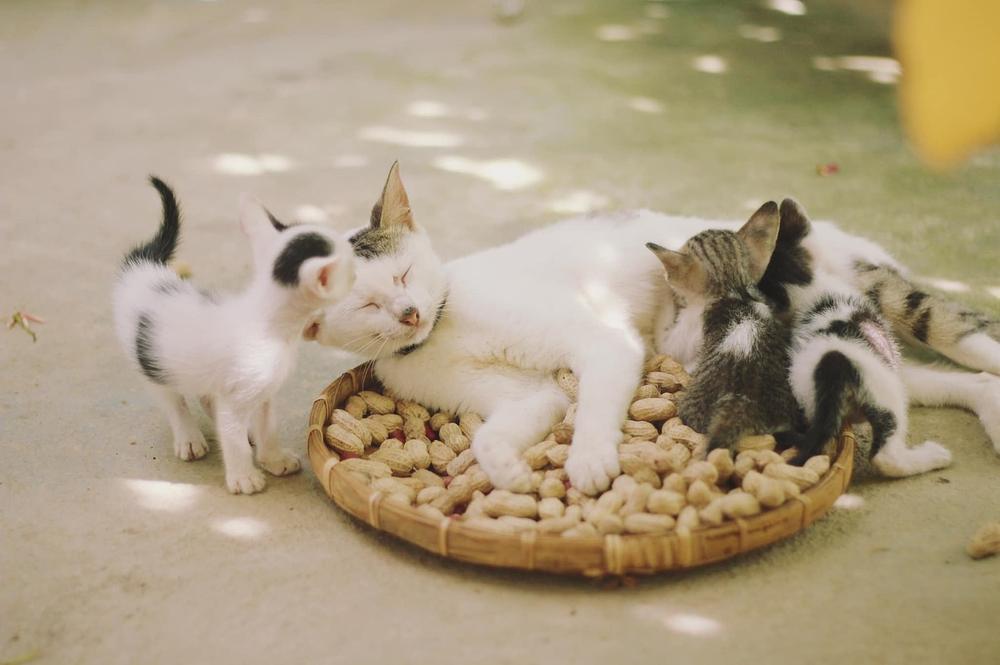
Your fur baby will be grateful.
Best diet for your feline friend
Now let's shift focus to what cats should eat to stay healthy and happy.
Cats need a well-balanced diet that gives them all the essential nutrients, like vitamins and minerals found in meat.
While grass can help with digestion and prevent hairballs, it shouldn't be the main part of their diet.
Try mixing dry cat food with wet food to give them different textures and flavors.
And don't forget to talk to your vet to meet your cat's specific dietary needs.
Onions are a cat's worst enemy.
Keep them away, feed your feline friend a balanced diet, and watch them thrive in good health!
Main points I'll expand upon further down this article:
- Avoid feeding your cat onions, including seasoning like salt.
- Even small amounts of onion can be harmful to cats.
- Cats lack the necessary enzyme to process plant-based products.
- Carbohydrates should only make up a minimal percentage of a cat's diet.
- Garlic and certain spices are also toxic to cats.
- Onion ingestion can reduce a cat's oxygen-carrying capacity and cause anemia.
- All allium vegetables contain substances that attack feline red blood cells.
- Symptoms of onion poisoning in cats include gastrointestinal distress, lethargy, and pale gums.
- Onion powder is more toxic than fresh onions.
- Seek immediate veterinary attention if your cat accidentally ingests onions.
And now, let me share with you some important information to bear in mind when it comes to feeding your precious feline friend.
I want to ensure that you understand the potential risks involved and can make informed decisions about their diet...
How Much Onion Can a Cat Eat?
| Amount of Onion | Potential Risks |
|---|---|
| A small piece of onion | Even a small amount of onion can be harmful for cats due to the presence of thiosulfate, which can cause damage to their red blood cells. |
| Cooked onions | Onions, whether cooked or raw, still contain thiosulfate and can pose a risk to cats if consumed. Cooking does not eliminate the toxic substance. |
| Onion powder or flakes | Onion powder or flakes can be more concentrated in thiosulfate than raw onions, making them even more dangerous for cats. It is best to avoid feeding any food product that contains onion seasoning or flavoring. |
| Hidden onion ingredients | Cats should not consume any food product that contains hidden onion ingredients. It's important to read labels carefully, as onions can be present in various forms such as powder, flakes, or as an ingredient in sauces or seasonings. |
| Accidental ingestion | In case your cat accidentally consumes onion, monitor them closely for any signs of illness such as vomiting, diarrhea, weakness, or pale gums. If any symptoms occur, consult a veterinarian immediately. |
When it comes to your cat, you need to be careful about the foods they eat, like onions.
Onions have something called thiosulfate that can cause harm to cats.
Even a tiny amount of onion can be toxic for your furry friend. We're talking just 5 grams per kilogram of body weight.
Don't underestimate this - it can lead to serious problems.
But here's the thing.
Cats struggle to digest plant-based foods.
They lack the enzymes needed to break down nutrients from foods like onions.
So, if they eat meat with onions or any products containing onion or garlic, it's bad news for their stomach.
And don't forget about other spices.
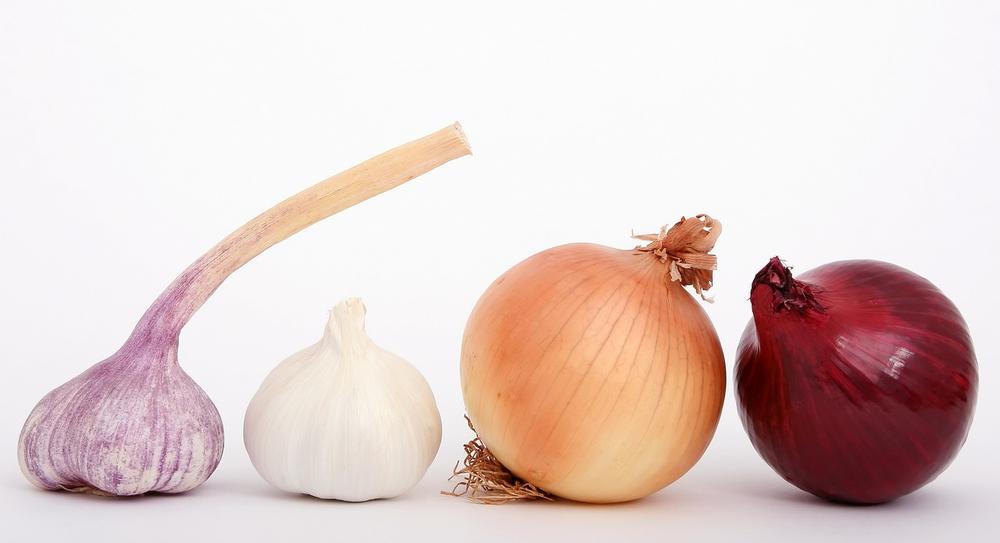
Cats should avoid those too.
Keep them away from anything seasoned - better safe than sorry.
Now, I understand you want to treat your cat, but let's do it right.
Treats should be limited to things like well-cooked, plain chicken. Trust me, your cat will still enjoy it and feel satisfied.
Speaking of diets, cats shouldn't consume too many carbs.
A small portion is okay, but too much can lead to obesity and digestive issues.
So, be mindful of that.
Stick to a balanced diet and your cat will appreciate it.
As responsible pet owners, we must be vigilant about what we feed our cats. It's all about keeping them healthy and happy.
And believe me, they'll show their gratitude with head scratches and purrs.
Symptoms of Onion Poisoning in Cats Include
Here's what to watch out for when it comes to cats and onion poisoning:
- If your cat starts throwing up or having diarrhea after eating onions, that's a bad sign.
- Is your cat looking more tired and less playful than usual? It could be because of the onions.
- Take a peek at your cat's gums - if they look lighter or paler than they should, that might mean anemia from the onions.
- Notice any weakness in your furry friend? Onions might be the culprit.
- Don't let your guard down just because symptoms don't appear right away - it can take up to five days for them to show up.
- In serious cases, your cat may need a blood transfusion to treat the anemia caused by onion ingestion.
- Remember, onion powder is especially strong and dangerous for cats - keep it far away from them.
Cats are extra vulnerable to onion risks compared to dogs, so ensure to steer clear of feeding them these foods. 😺
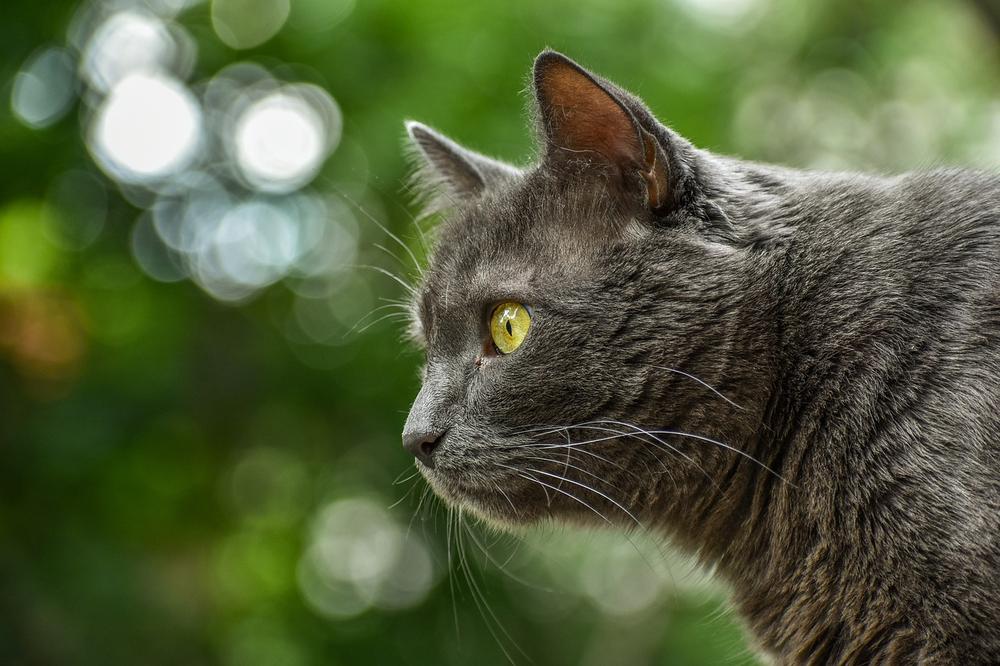
Now, you might be wondering what steps you should take if your cat has ingested onions.
Well, immediate action is crucial, and in the next section, we will discuss the necessary measures to ensure your cat's safety and well-being.
From inducing vomiting to seeking veterinary attention, find out how to respond effectively to onion poisoning in cats...
What to Do if Your Cat Eats Onions
If your cat has eaten onions, whether raw or cooked, onion powder, or any food containing onions, you must act quickly.
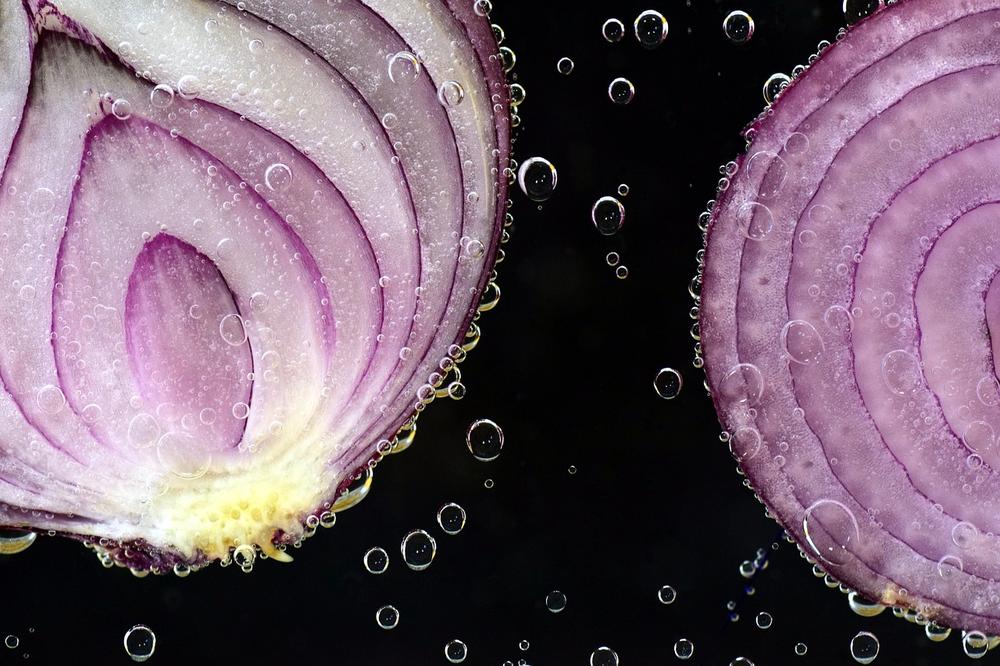
Here's what you need to do if your cat ingests onions:
- Call your veterinarian immediately for guidance on how to proceed.
- Do not induce vomiting without consulting a professional, as it may not be safe or effective for cats.
- Provide the veterinarian with detailed information about the onion exposure, including the type of onion and how much was consumed.
- Monitor your cat closely for symptoms such as frequent vomiting, diarrhea lasting more than two days, or difficulty breathing.
- Follow your veterinarian's advice for supportive treatment, which may include intravenous fluid therapy and hospitalization.
- Understand that there is no specific antidote for onion poisoning in cats.
- Prevent future incidents by keeping onions out of reach and avoiding feeding your cat raw food to reduce the risk of bacterial contamination.
Immediate veterinary attention is crucial when your cat ingests onions, so don't hesitate to seek help.
Do Cats Like the Taste of Onion?
Cats and humans have different taste preferences. Cats are considered "obligate carnivores" because their taste buds are all about meat.
When it comes to onion, cats generally don't enjoy its taste.
There might be times when they find onion mixed with other foods more enticing, but remember that onions can harm cats, so it's best not to feed them any.
Here's why you should avoid giving your cat onions:
- Onions contain toxic substances that can damage your cat's red blood cells.
- Allium poisoning from onions can make cats weak, vomit, and even damage their organs.
- Onions can cause anemia, which is life-threatening for your furry friend.
Always prioritize your cat's health by avoiding onions, and if you notice any problems, consult a veterinarian right away.
Are Onions Used in Commercial Cat Food?
| Question | Answer |
|---|---|
| Are Onions Harmful to Cats? | Yes, onions are toxic to cats. They contain compounds that can cause damage to a cat's red blood cells, leading to a condition called Heinz body anemia. It is best to avoid feeding onions or onion-containing foods to cats. |
| Why are Onions Toxic to Cats? | Onions contain substances called thiosulphates, which are toxic to cats. These compounds can cause oxidative damage to a cat's red blood cells, leading to their destruction. Cats lack the necessary enzymes to break down and eliminate these substances from their system. |
| What are the Symptoms of Onion Toxicity in Cats? | If a cat consumes onions, they may experience symptoms such as lethargy, weakness, pale gums, increased heart and respiratory rates, vomiting, diarrhea, and discolored urine. It is important to seek immediate veterinary care if onion ingestion is suspected. |
| How Much Onion is Dangerous for Cats? | Even small amounts of onions can be dangerous for cats. The toxicity is dose-dependent, meaning that the more onions a cat consumes, the greater the potential for harm. It is best to avoid feeding onions to cats altogether, including onion powder or small pieces found in other foods. |
| What to Do If a Cat Ingests Onions? | If you believe your cat has ingested onions or onion-containing foods, it is important to contact your veterinarian immediately. The veterinarian can assess the situation and provide appropriate treatment, which may include inducing vomiting, providing supportive care, and monitoring the cat's condition. |
| Can Cats Develop Onion Allergies? | While cats can develop allergies to various foods, including onions, onion allergies in cats are relatively rare. However, it is still important to avoid feeding onions to cats due to their potential toxicity. It is recommended to stick to a balanced diet specifically formulated for cats. |
No way onions are in commercial cat food.
Absolutely not.
Here's a secret for you.
The makers of cat food prioritize the safety and well-being of our feline friends.
They have strict regulations to ensure cats receive only the best.
Guess what is toxic for cats?
Onions.
Cats should never consume them.
You won't find any onions in your cat's favorite canned or dry food.
Balanced feeding is crucial for cats. They have unique nutritional needs that require a specific diet.
High-quality wet or semi-moist food rich in animal protein is essential.
Not just any protein will do.
We need animal protein sourced from meat and fish.
It contains vital amino acids that promote cat health.
Moderate amounts of fruits and veggies are alright, but meat and fish provide important minerals like calcium, phosphorus, magnesium, and potassium.
So, that's what we should prioritize in their diet.
Fillers like sugar, grains, vegetables, and meat substitutes are unnecessary.
Choose cat food wisely by reading labels and avoiding onion surprises.
Your cat's well-being depends on it.
Debunking Onion and Cat Consumption Myths
Onions and cats...an interesting combination, indeed.
But let's clear something up right away:
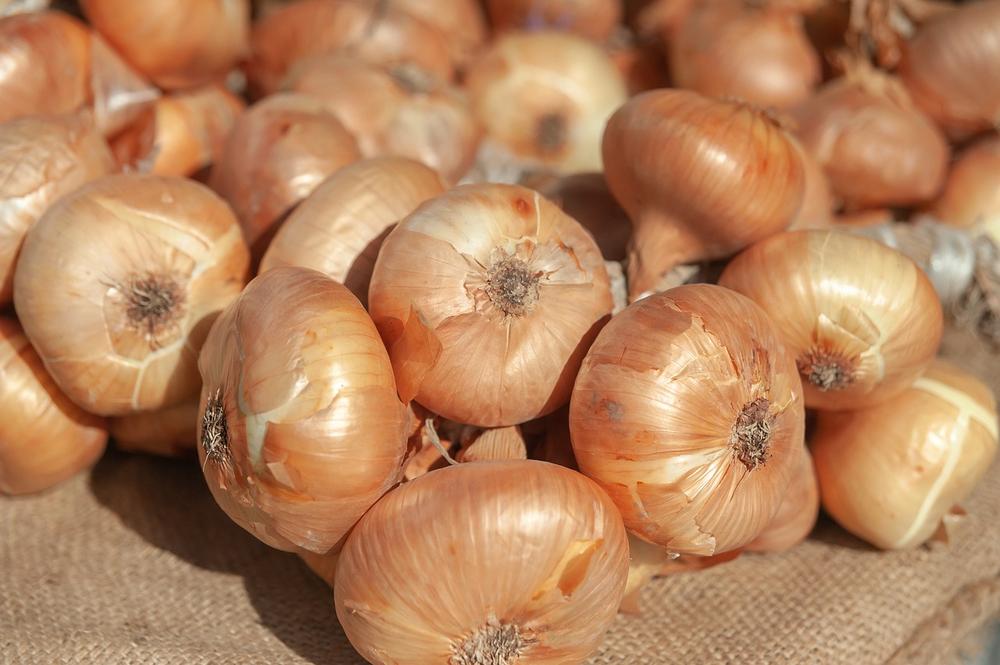
Contrary to popular belief, onions are definitely NOT good for our feline friends.
You might have come across various guides claiming otherwise, but trust me when I say that onions and cats do not mix well at all.
So keep those onion slices far away from your furry companions!
Now, there are plenty of other helpful guides out there telling you what cats can or cannot eat, so make sure to consult them for any doubts. Just remember, when it comes to onions and cats, it's a firm no-no.
And that wraps up today's article.
Before you leave, can I ask you something? Did my blog post help you out? If it did, I would be extremely grateful if you could share it with your loved ones. You can simply click on any of the social media icons to instantly share it. Thank you so much!
Talk soon,
-Sarah Davis